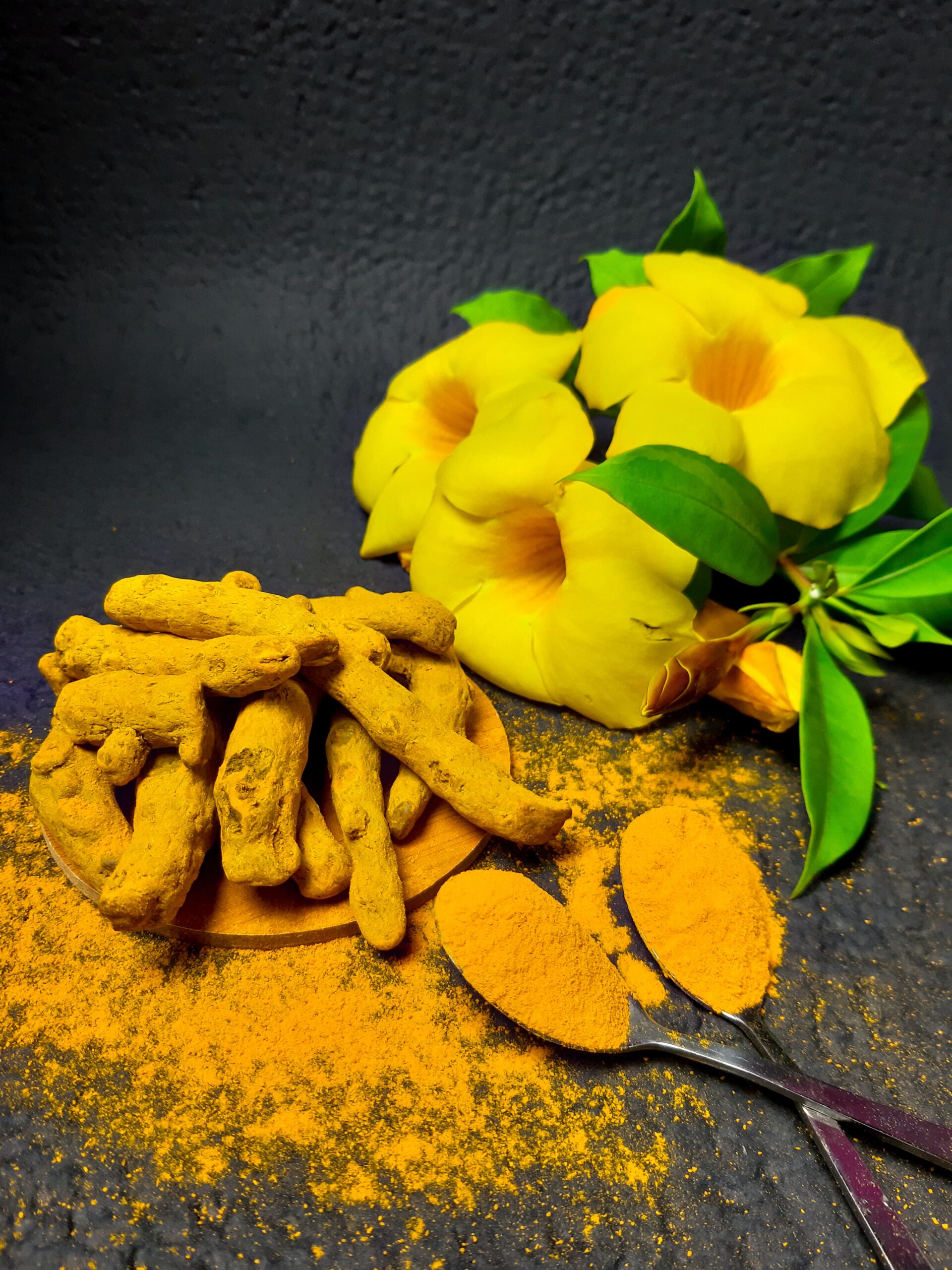Endometriosis is an inflammatory disorder, and inflammation can lead to increased pain, fatigue, and general feelings of unwellness (Nothnick & Alali, 2016). It has been shown that “endometriotic lesion removal significantly alters the inflammatory profile both locally and systemically in women with endometriosis” (Monsanto et al., 2016). While some of us work on achieving that expert excision of endometriosis lesions, we look for things that might potentially help in the meantime. One thing we hear about often in the media these days is turmeric.
Curcumin has been mainstreamed for its effects on inflammation. Curcumin is the “major bioactive component of the spice herb turmeric…used traditionally in Indian and Chinese medicine and widely consumed in the Asian diet” (Jager et al., 2014). While there are not many strong studies to support its effect on endometriosis, some studies have indicated that it can lower inflammation, reduce the growth of new blood vessels (angiogenesis), act as an antioxidant, and induce apoptosis (programmed cell death in damaged cells).
For example, Vallée and Lecarpentier (2020) report that “curcumin can downregulate inflammation and [oxidative stress] in endometriosis” and suggest that “future clinical trials are needed to better investigate and highlight the role of curcumin in endometriosis.” Balan et al. (2021) further reports that “in endometriosis, curcumin reduced the number of endometriotic cells through the modulation of estrogen levels” as well as has anti-angiogenic function, anti-oxidative potential, and can induce apoptosis. Kamal et al. (2021) reports that “in vitro and in vivo studies reported the positive effects of curcumin in alleviating endometriosis through anti-inflammatory, anti-proliferative, anti-angiogenic and pro-apoptotic mechanisms.” Kamal et al. (2021) further comments that:
“Some studies found considerable therapeutic effects, whereas others found no effect. However, none of the investigations found curcumin to be harmful. Curcumin clinical trials in endometriosis and ovarian illness are still scarce; thus, future studies need to be conducted to confirm the safety and efficacy of curcumin before it could be offered as a complementary therapy agent.”
The formulation of curcumin is important as “the potential health benefits of curcumin are limited by its poor solubility, low absorption from the gut, rapid metabolism and rapid systemic elimination….A formulation of curcumin with a combination of hydrophilic carrier, cellulosic derivatives and natural antioxidants significantly increases curcuminoid appearance in the blood in comparison to unformulated standard curcumin” (Jager et al., 2014). While there is not strong evidence to support its use in endometriosis, it shows some promise in battling the effects of inflammation from endometriosis until the lesions can be removed.
Is there an endometriosis Diet?
References
Balan, A., Moga, M. A., Dima, L., Dinu, C. G., Martinescu, C. C., Panait, D. E., … & Anastasiu, C. V. (2021). An Overview on the Conservative Management of Endometriosis from a Naturopathic Perspective: Phytochemicals and Medicinal Plants. Plants, 10(3), 587. Retrieved from https://www.mdpi.com/2223-7747/10/3/587/htm
Jäger, R., Lowery, R. P., Calvanese, A. V., Joy, J. M., Purpura, M., & Wilson, J. M. (2014). Comparative absorption of curcumin formulations. Nutrition journal, 13(1), 1-8. Retrieved from https://nutritionj.biomedcentral.com/articles/10.1186/1475-2891-13-11
Kamal, D. A. M., Salamt, N., Yusuf, A. N. M., Kashim, M. I. A. M., & Mokhtar, M. H. (2021). Potential Health Benefits of Curcumin on Female Reproductive Disorders: A Review. Nutrients, 13(9), 3126. Retrieved from https://www.mdpi.com/2072-6643/13/9/3126
Monsanto, S. P., Edwards, A. K., Zhou, J., Nagarkatti, P., Nagarkatti, M., Young, S. L., … & Tayade, C. (2016). Surgical removal of endometriotic lesions alters local and systemic proinflammatory cytokines in endometriosis patients. Fertility and sterility, 105(4), 968-977. Retrieved from https://www.ncbi.nlm.nih.gov/pmc/articles/PMC4851862/
Nothnick, W., & Alali, Z. (2016). Recent advances in the understanding of endometriosis: the role of inflammatory mediators in disease pathogenesis and treatment. F1000Research, 5. Retrieved from https://www.ncbi.nlm.nih.gov/pmc/articles/PMC4760268/pdf/f1000research-5-8083.pdf
Vallée, A., & Lecarpentier, Y. (2020). Curcumin and endometriosis. International journal of molecular sciences, 21(7), 2440. Retrieved from https://www.mdpi.com/1422-0067/21/7/2440/htm





comments are closed .